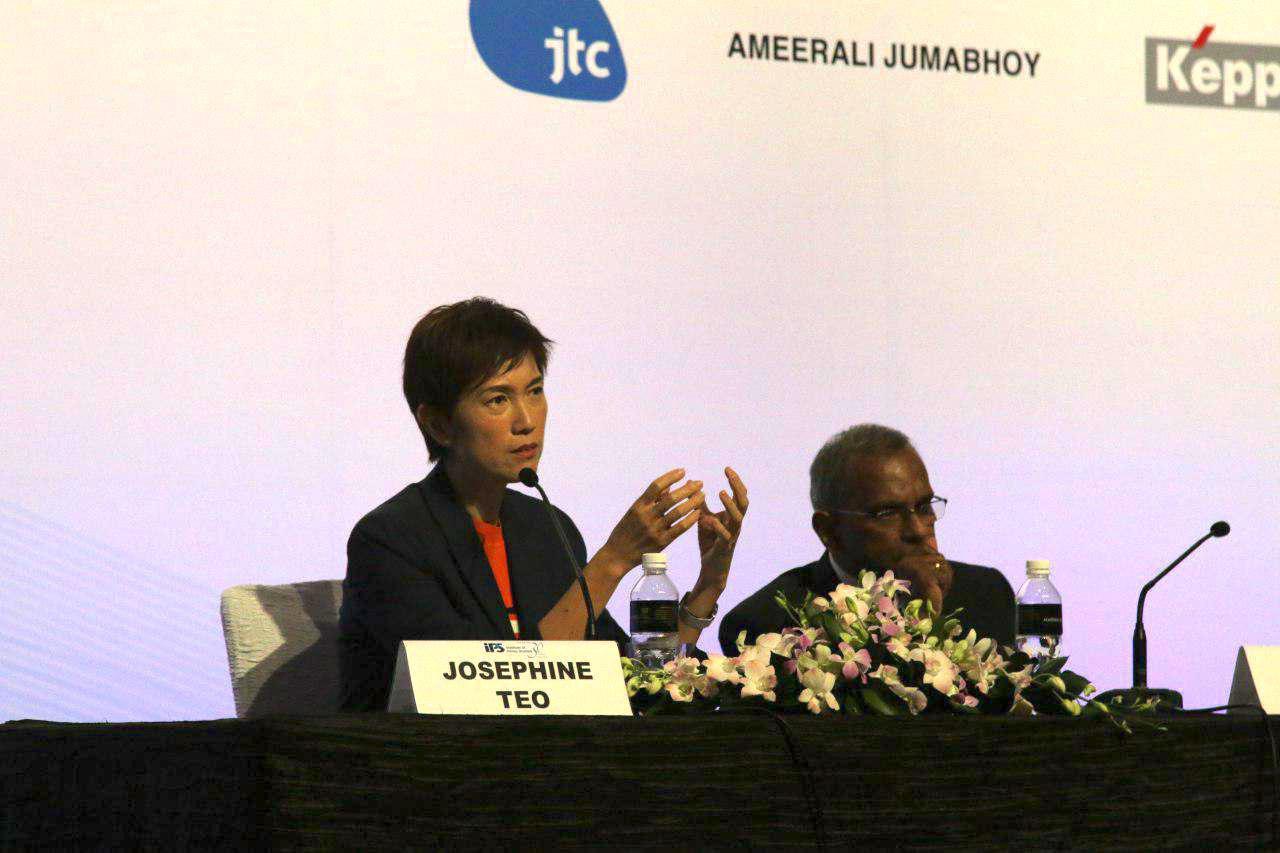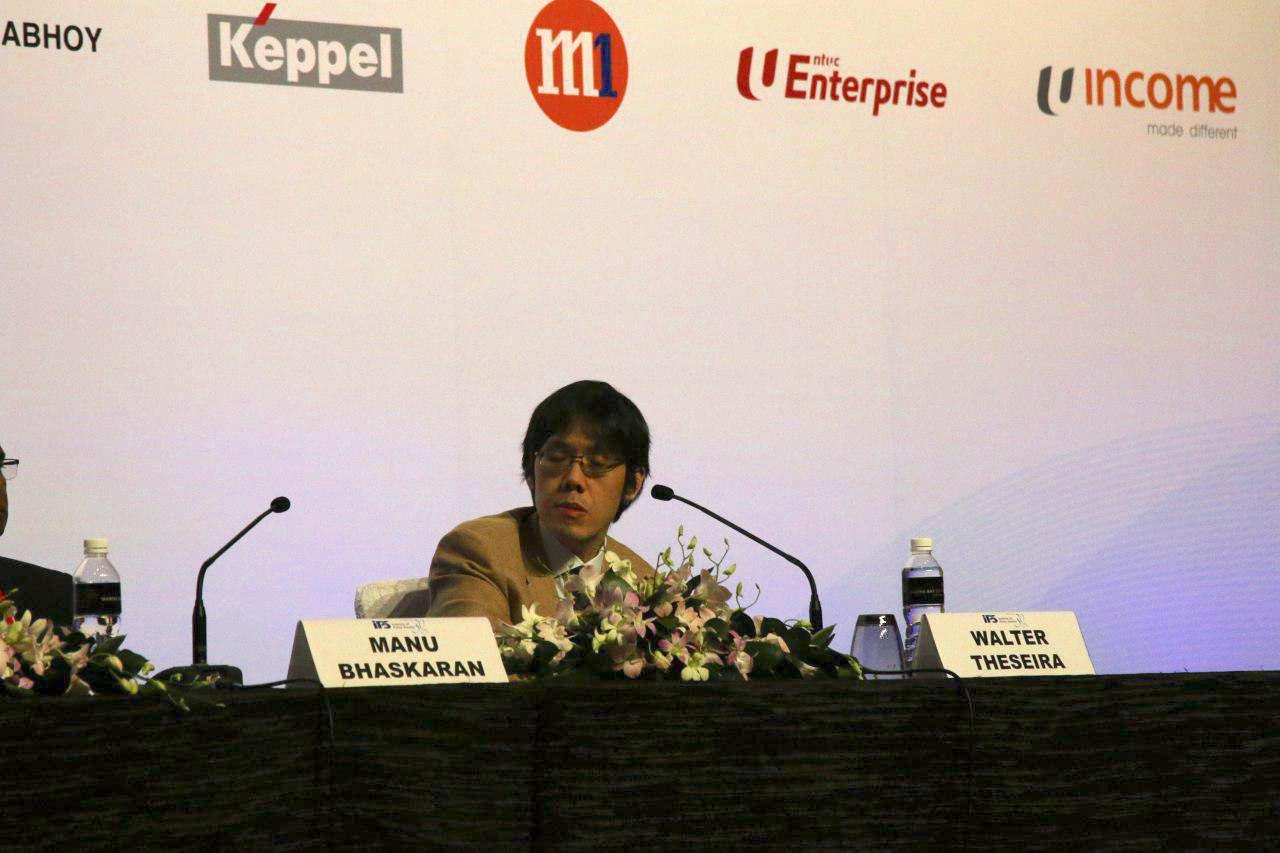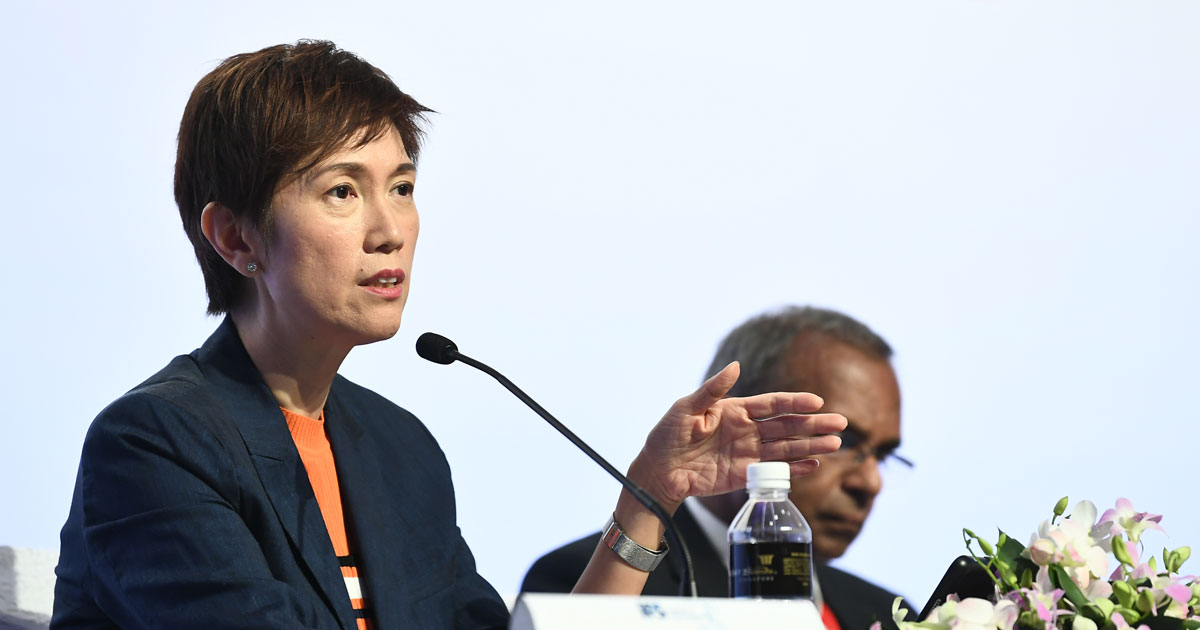The issue of minimum wage in Singapore (or more specifically, its lack thereof) emerged once again on Friday morning.
At the Institute of Policy Studies (IPS)'s 30th anniversary conference, Diversities: New and Old, Ambassador-at-large Tommy Koh challenged the government's idea that it has made strides in lifting the incomes of the lowest-earning Singaporean workers without the need for an absolute minimum wage policy.
In a question he posed at the conference's first session helmed by Manpower Minister and Second Minister for Home Affairs Josephine Teo, Koh made reference to an old analogy made by the late Lee Kuan Yew about his vision for the shape of Singapore in terms of income distribution.
"Mr Lee said, 'I want to build a Singapore which resembles an olive — very few very rich, very few poor people, and a very large middle income.'
I recently plotted the income profile of Singapore. It does not look like an olive. It looks like a pear — a large number of people at the bottom. What has happened to Mr Lee's olive? How did the olive become a pear? And if the pear is not what we want, what can we do about it?"
 Photo by Jeanette Tan
Photo by Jeanette Tan
Teo: Pear structure is a "problem of success"
Teo responded to Koh's question by saying the olive structure Singapore has is a "problem of success" that is "very difficult to overcome":
"One perspective of looking at it is how is it that there is still a group that was not able to make the leap? But another way of looking at it is that it is a problem of success. It is because a system has been built up which enabled large numbers of people, large swathes to move up to the middle, then from the middle to move up to the upper-middle types of level of attainments, and this group has expanded.
And I said this at the beginning of my presentation — that with each successive cohort, the parents very naturally want to expand that advantage. It's something that is very difficult to overcome, and I think the honest way of dealing with it is to say that the journey ahead is going to be harder than what it was in the past. If we fail to recognise that, then I think we will never be able to find a way to bridge."
However, she said the real solution to confronting this problem comes in a big way from delinking economic worth and moral worth.
"But there is another very important aspect, I think, which is that regardless of where we are... that economic worth must not equate to moral worth, that there must be a way that we are able to look each other in the eye and look past all the markers of social success and say to each other, at the level of human beings, there is a certain inherent worth in each one of us.
And we can treat and interact with each other with respect and consideration. And if we are not able to do that, then I think no system will be able to help us succeed. That to my mind, is the greater challenge of our society. "
In defence of government's existing approach regarding supplementing low wages
In her opening remarks to the session, Teo had earlier defended the government's approach against the implementation of a minimum wage, justifying that the Workfare Income Supplement (WIS) works just as well or even better, calling it a "permanent feature of our social security system".
 Photo by Jeanette Tan
Photo by Jeanette Tan
WIS is allocated to the bottom 20 per cent of workers. Workers receive 60 per cent of WIS as CPF top-ups to build up their retirement savings and 40 per cent of WIS as cash supplements.
Teo said that unlike a minimum wage, which, might trigger employers to cut back on employment (since they need to pay more per worker) or force workers to seek illegal employment (when employment gets cut), the cost of WIS is borne by the government, "with no risk of inducing unemployment or illegal employment of such workers".
Coupled with the Progressive Wage Model (PWM), Teo said the government provides a "ladder" for workers to progress along an "upward path", making wage increases more sustainable.
Countering Teo's points, Koh pointed out that after implementing a minimum wage in Hong Kong, Japan, and South Korea, these economies lifted "hundreds of thousands" out of poverty and enabled them to "live in dignity". These economies, he argued, did not encounter illegal employment nor unemployment — scenarios justified by Teo for not having a minimum wage.
In response, Teo recounted an anecdote where an elderly security guard in Hong Kong was replaced by a younger worker after the implementation of minimum wage. The elderly security guard relocated to Southern China after, possibly in response to the higher cost of living in Hong Kong.
"To what extent is he living his retirement years in dignity?" she asked.
Associate Professor Walter Theseira of Economics at the Singapore University of Social Sciences, who was also on the panel, asked about the cost of redistributing income to move from a pear to an olive.

"... in part this is a question about what do you get, right? For example, do you get a big pear or do you get a smaller olive? The reason why I say that is it's actually quite obvious if you have pretty strict, for example, taxation or redistribution policies, you can take any arbitrary pear-shaped income redistribution and you can sort of massage it into an olive. And the real question is, after the massaging is done, do you end up with a lot less fruit than what you started off with originally — that's the real question, right?
And I think again, the evidence in this is going to be mixed. There is no question that if you take all of the income people have and then redistribute it you can then create any arbitrary olive fruit, but you may not have much left after the squeezing is done.
But, I think again, for a range of taxes, it is possible to achieve more redistribution without noticeably affecting or hurting people's incentives to work... I think to some extent sometimes we overestimate the negative impact of marginal taxes on the high end, of course if you go from 20 or 30 per cent to 90 per cent, it's going to be obvious if people are going to cut back on their work a lot.
But I think the evidence on the elasticity of response to changes in top marginal tax rates is really quite mixed. There is some recent evidence that for example suggests that for quite a wide range of top end marginal income taxes, there is not much different in growth across countries.
Again, I think there's a lot more work that needs to be done on this but I think we should have the confidence to not shy away from raising taxes if we believe that it's necessary to maintain our social compact and we think that in terms of our competitiveness it's not going to hurt us too much."
Another article from the IPS conference:
Top image by Jacky Ho, for the Institute of Policy Studies, NUS
Content that keeps Mothership.sg going
?
This is what it feels like to have your hair removed by intense bursts of light.
? vs ?
You're on the MRT. Do you read or surf?
Why not both??
If you like what you read, follow us on Facebook, Instagram, Twitter and Telegram to get the latest updates.
